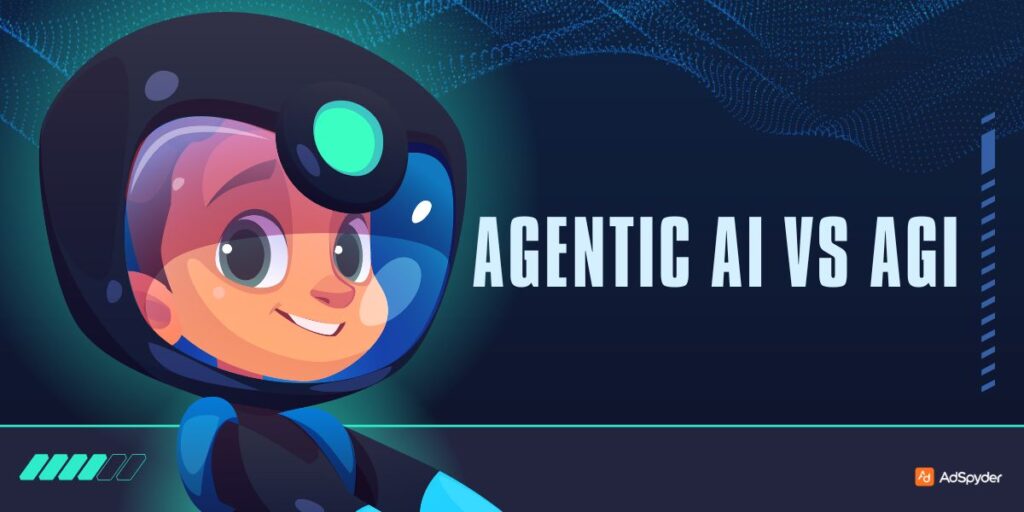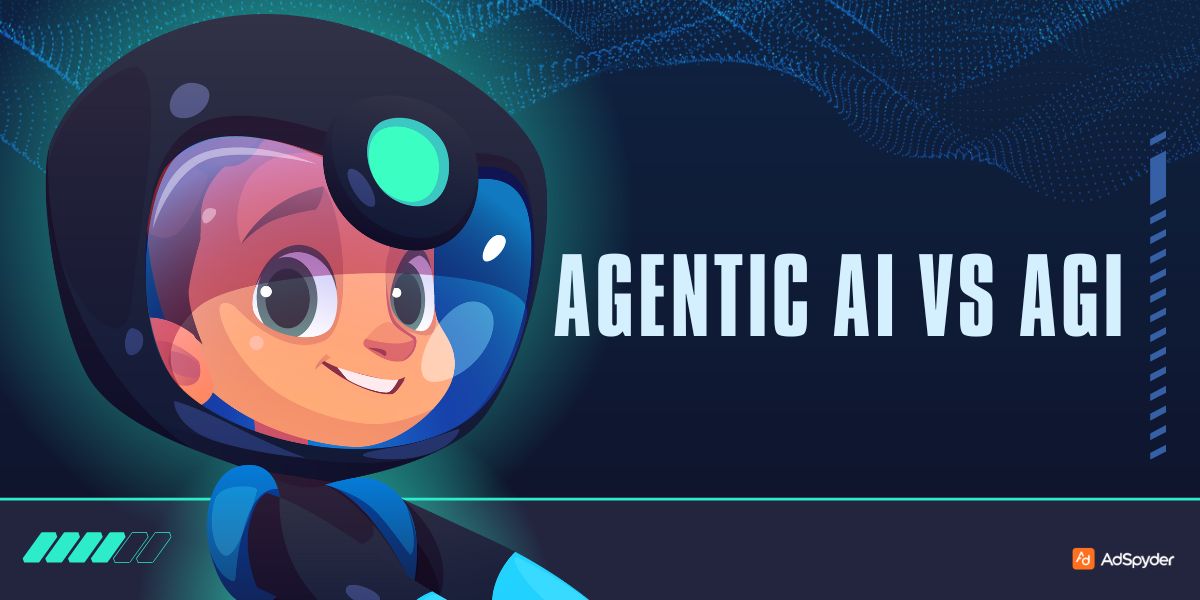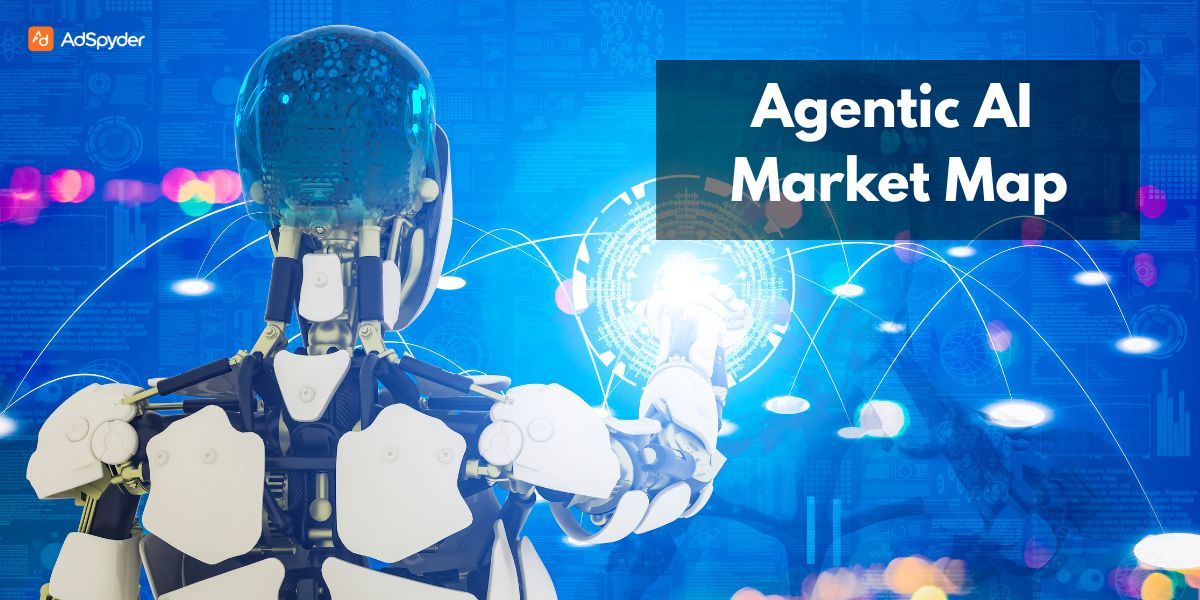In the fast-moving world of artificial intelligence, two terms frequently generate buzz, confusion, and high expectations: Agentic AI vs AGI. While they sound related—and both promise transformative impact—they are fundamentally different in scope, purpose, and maturity. In this blog, we’ll demystify what each term means, what they can (and can’t) do today, and why understanding the difference is critical to making smart AI investments.
Ready to Elevate your Marketing Strategy?
What is AGI?
Artificial General Intelligence (AGI) refers to a theoretical type of AI capable of carrying out any task that typically requires human intelligence. AGI is characterized by:
- Human-like reasoning across diverse domains
- Transferable learning from one context to another
- Consciousness-like adaptability
- Emotional and ethical reasoning
- Open-ended, self-directed behavior
AGI is not just about answering questions—it’s about understanding, learning, and solving problems in a wide array of domains without task-specific tuning.
Key Point:
AGI does not exist yet. It remains a research goal and philosophical debate rather than a deployable technology.
What is Agentic AI?
Agentic AI, by contrast, is a very real and practical system design that:
- Uses LLMs (like GPT-4 or Claude) as a reasoning core
- Adds planning, memory, and tool use
- Executes tasks based on user goals
- Works autonomously within specific contexts
Agentic AI is not trying to think like a human across all domains—it’s trying to solve real-world problems efficiently by acting like a rational software agent.
Related – Agentic AI Market Map
Key Differences: Agentic AI vs AGI
| Dimension | AGI | Agentic AI |
| Definition | Human-level general intelligence | Goal-driven, tool-using task automation |
| Current Status | Hypothetical, under research | Real and in production |
| Scope | All cognitive domains | Task-specific, domain-agnostic workflows |
| Reasoning Type | Abstract, open-ended | Structured, guided by LLMs and tools |
| Autonomy | Full cognitive autonomy | Task autonomy within boundaries |
| Memory & Learning | Lifelong, self-directed | Bounded, structured memory (short/long) |
| Ethics & Sentience | Central concern | Not applicable |
Common Misconceptions
“Agentic AI = AGI in disguise”
False. Agentic AI is powerful but operates within defined boundaries. It can automate workflows, plan actions, and adapt within its architecture, but it doesn’t “understand” like a human or generalize across unrelated domains without guidance.
“If a system acts autonomously, it must be AGI.
Not true. Many autonomous systems (like robotic vacuums or self-driving cars) exhibit autonomy, but they don’t possess general intelligence. The same is true for agentic systems.
Real-World Applications of Agentic AI
Agentic AI is already being used in:
- Customer support: Resolve tickets end-to-end
- Marketing automation: Run campaigns based on real-time data
- IT operations: Monitor logs, identify root causes, and take action
- Legal workflows: Draft documents, review contracts, and file responses
- Healthcare: Manage patient queries and coordinate appointments
These systems may look like science fiction, but they’re grounded in APIs, task logic, and structured LLM integration.
Why AGI Is Still Far Away
Despite rapid progress in AI, AGI faces significant hurdles:
- A lack of common-sense reasoning in machines
- Challenges in long-term memory and transfer learning
- Absence of consciousness, emotion, or ethical understanding
- No current system can match human flexibility and creativity across all domains
Most AGI claims today are speculative or driven by marketing. Leading researchers agree we are likely years—or decades—away from achieving safe, scalable AGI.
Why Agentic AI Is the Right Focus Now
Organizations today don’t need machines that think like humans. They need machines that:
- Automate tasks reliably
- Work across systems and tools
- Understand user goals
- Adapt to changing business inputs
Agentic AI delivers all of this without needing full human-level cognition. It’s practical, modular, and production-ready.
Final Thoughts
Agentic AI is real. AGI is not, at least not yet.
Confusing the two leads to misaligned expectations, poor investments, and strategic delays. Agentic AI represents the next stage of applied intelligence: not artificial consciousness, but intelligent task automation with autonomy and planning.
Focus on what’s real and actionable today—and Agentic AI is the intelligent path forward.
FAQs for Agentic AI vs AGI
Is Agentic AI a form of AGI?
No. Agentic AI is a practical architecture that uses LLMs for task execution. AGI refers to a hypothetical AI with human-like reasoning and general learning, which does not yet exist.
Can Agentic AI eventually become AGI?
Possibly, but not without major advances in memory, reasoning, transfer learning, and self-awareness. Agentic AI is a step toward autonomy, but not general intelligence.
What is the biggest difference between AGI and Agentic AI?
AGI aims to replicate general human intelligence. Agentic AI is designed to complete tasks autonomously within a defined domain using tools, memory, and LLM reasoning.
Is AGI currently available or usable?
No. AGI remains a theoretical goal in AI research. It’s not available as a product or deployable system.
Can Agentic AI work across multiple domains?
Yes, but only when directed. It doesn’t learn or reason across domains on its own like AGI would. Each task or domain needs to be architected and supported.
Does Agentic AI think like a human?
No. Agentic AI uses pattern-based reasoning from language models. It doesn’t possess self-awareness, common sense, or emotional intelligence.
Is Agentic AI safe to deploy today?
Yes. It’s already being used in support automation, marketing operations, software development, and enterprise IT—unlike AGI, which poses unresolved ethical risks.
How does memory work in Agentic AI?
Agentic systems use short-term memory (per session) and long-term memory (retrievable knowledge) to maintain context across steps. This is structured, not self-learned like AGI aims for.
What’s the benefit of Agentic AI over AGI speculation?
Agentic AI is actionable now. It enables real automation, efficiency, and decision support without waiting for AGI’s hypothetical emergence.
Should businesses invest in AGI research or Agentic AI tools?
Businesses should focus on Agentic AI tools that solve concrete problems today. AGI is primarily a long-term research concern with uncertain timelines and risks.




